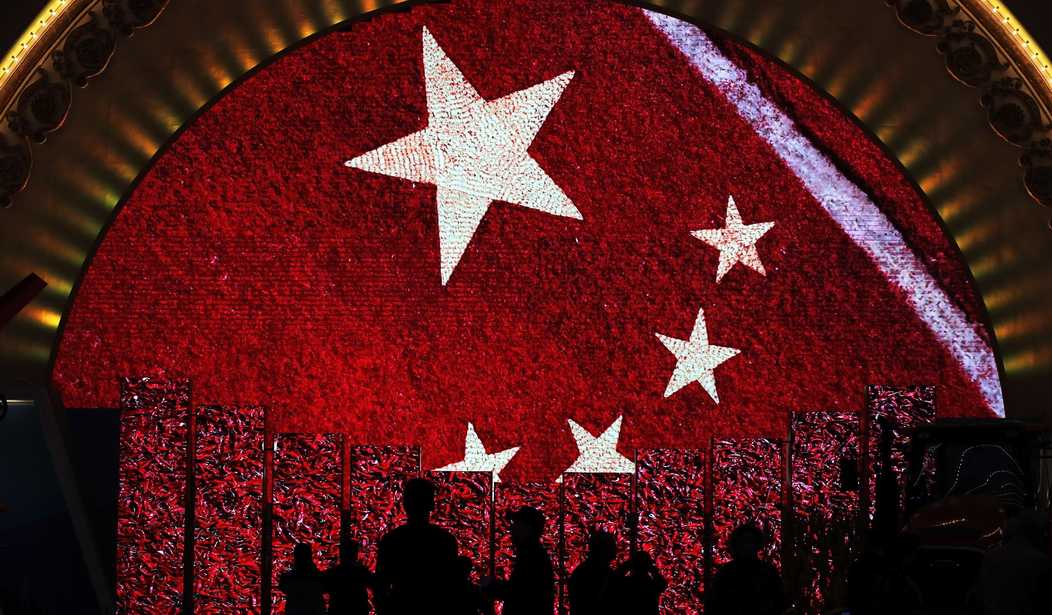On Oct. 26, the Washington Free Beacon published a hard-hitting investigative article exposing a truly appalling and destructive example of communist China's long-term war on free societies, in this case using influence and information as weapons.
The Free Beacon detailed The Economist magazine's years of "sympathetic" coverage of China's Huawei Technologies company. Then the report connected information to a kind of influence by documenting the magazine's profitable business relationship with the notorious corporate giant. The Free Beacon noted The Economist did not acknowledge that economic relationship for nearly a decade.
Huawei's deep financial and operational connections to the Chinese Communist Party are no secret. The CCP has the final say over Huawei's international operations. That indicates the CCP was a silent partner in the Huawei-Economist arrangement.
According to the Free Beacon report, written by Yuichiro Kakutani, from 2012 through 2018, the Economist Intelligence Unit (the magazine's consulting division) published at least seven Huawei-commissioned reports the company used to "advance its policy agendas and deflect cybersecurity concerns raised by Western governments." Huawei credited the reports with influencing British broadband and communications policy.
But here's the damning quote that implicates the news and editorial divisions. The magazine itself had "defended Huawei in a front-page cover story in 2012 -- the year the publication's consulting division started working with the company." Titled "Who's afraid of Huawei?" the story "accused Western countries of using cybersecurity concerns as a pretense to oppose legitimate competition from Huawei."
I visited The Economist website and read Aug. 4, 2012, story. The Free Beacon summarizes it fairly. The Economist's editors called Huawei "China's new world-beater." The article mentioned Chinese cyber-espionage, Huawei's government connections, its "opaque ownership structure, and secretive culture," and other security and competitive issues -- column inches devoted to the list. However, the editors dismissed these critical issues as "fretting." This quote reveals the editorial attitude: "Huawei's competitors have a vested interest in hyping concerns about it while disguising their own reliance on Chinese subcontractors and on subsidies."
Recommended
Substituting a bland word for a harsh one is a euphemism. The term "euphemize" also has a rhetorical meaning: a statement characterized by evasive or dismissive language. The Economist's 2012 Huawei coverage dismisses deep national security concerns as frets.
The Free Beacon's bottom-line accusation: Chinese money bought advantageous (euphemized) treatment, if not favorable news coverage and a positive editorial attitude in a news and business journal long regarded as one of the world's most influential -- influential in terms of its editorial acumen, erudite reporting, and savvy story selection. The Economist's international subscriber base is well educated, wealthy, and connected.
It appears the CCP managed to influence The Economist's purveyors of influence and did so not in one or two instances but for eight critical years. The CCP wasn't simply targeting The Economist. Huawei has tried to co-opt media everywhere. But The Economist allegedly influences the influencers in capital cities around the planet, which gives it unique leverage.
For the past two decades, Huawei has engaged in espionage operations, racketeering, economic corruption, and influence operations on behalf of Beijing while positioning itself to dominate global and regional communications infrastructure and international digital systems.
Until summer 2020, the British government was committed to using Huawei's suspect 5G technology -- so the political influence attributed to the Economist Intelligence Unit's reports lingered. I'll wager the magazine's soft and euphemized coverage helped stall attempts to curb Huawei's activities.
The word "influence" dominates this column. "Influence operations" are a major topic of national security concern. Influence operations are hard to define. In 2009, RAND Corporation offered this one: "efforts to influence a target audience, whether an individual leader, members of a decision-making group, military organizations and personnel, specific population subgroups, or mass publics."
From the Chinese perspective, Hunter Biden's alleged business deals in China would classify as an effort to influence an individual leader.
Congratulations to the Washington Free Beacon for documenting how corrosive and effective China's influence operations can be.

























Join the conversation as a VIP Member